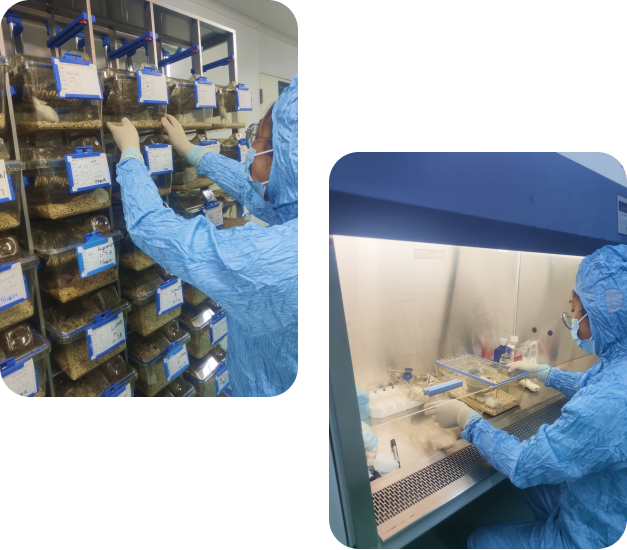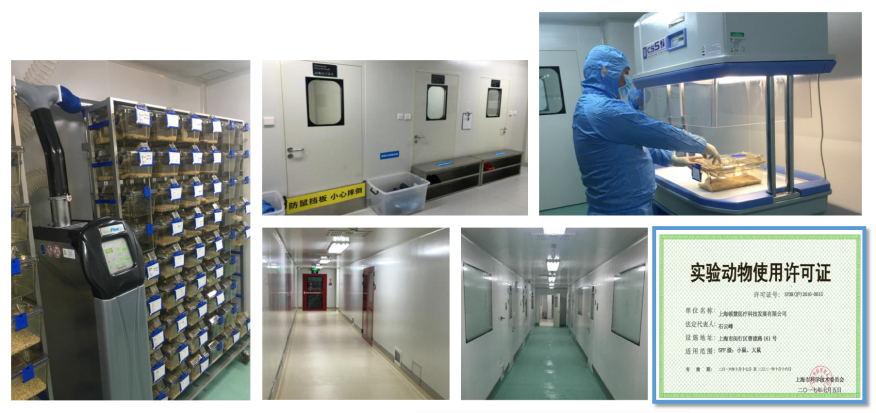
Patient-Derived Xenografts(PDX)refers to a transplanted tumor model constructed by transplanting patient tissue (usually tumor tissue) onto immunodeficient mice. The PDX model can fully preserve the characteristics of primary tumors, so drug screening based on the PDX model has good predictive clinical efficacy.
Dunwill has an advanced SPF level animal experimental center, which has been operating efficiently for eight years and has successfully passed the review by the Shanghai Science and Technology Commission. The center is furnished with an ISO Class 7 fresh air barrier system, Italian TECNIPLAST professional IVC (independent ventilation cages), and ISO Class 4 air quality mobile cage changing workstations, which can accommodate approximately 12500 animals at the same time. The small animal’ s X-ray CT scanner can be used to monitor the growth of tumors in vivo. The intelligent microscopic cell imaging system can be used to quickly obtain high-quality cell imaging.
Dunwill focuses on the PDX model. Currently, over 1,200 PDX samples have been inoculated on animals and nearly 14000 animals have been inoculated on the platform. Dunwill' s PDX models mainly focus on digestive tract tumors, including liver cancer, gastric cancer, cholangiocarcinoma, colorectal cancer, etc. Especially, the number of liver cancer PDX models is leading in the industry. PDX model related projects, such as PDX model drug sensitivity test, organoid drug sensitivity test, new drug and new treatment method test can be provided professionally and efficiently on the platform. Other preclinical animal model studies can also be conducted on the platform.
PDX Model Platform

SPF level animal experimental institution certified by the Shanghai Science and Technology Commission
100% brand new wind barrier system
TECNIPLAST professional IVC cages imported from Italy
Advanced management mode and precise experimental data
Organoids
Organoid: An in vitro 3D cell model derived from organ progenitor cells or stem cells, possessing the functional characteristics of an organ. It has the ability to self-renew and highly similar organizational characteristics. Tumor organoids: Tumor tissue cells aggregate into heterogeneous spheres, possessing the genetic lineage and pathological features of the primary tumor, known as "mini tumors" or "patient substitute".
Dunwill establishes organoids based on patient tissues. The existing organoid biological sample database includes liver cancer organoids, gallbladder cancer organoids, kidney cancer organoids, colon cancer organoids, neurofibroma organoids, etc. It can provide services for constructing multiple types of organ models, pathological identification, single-cell sequencing, and drug sensitivity testing.

Precision Medicine
Regenerative Medicine
Patient Drug Sensitivity Prediction
Research on the mechanism of tumor occurrence and development
New Drug Development

Collaborating with platforms such as molecular biology research, pathology, animal centers, high-throughput sequencing, bioinformatics, PCR etc., to jointly carry out projects.



